10 Best Musical Instruments for Beginners
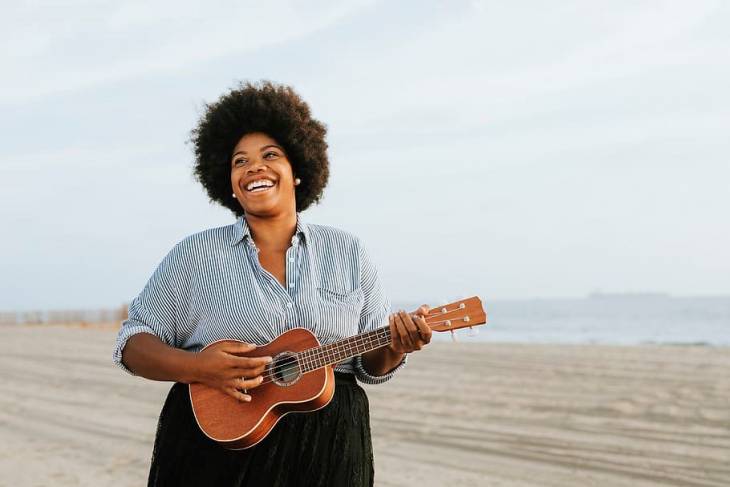
Woman happy playing Ukulele.
Mastering the art of using a musical instrument to bring a beautiful sound to life is rewarding in so many ways. Music can instill discipline, improve executive brain functions, and strengthen motor-skills coordination for both kids and adults.
Music can also help us express creativity and emotions, devise healthy measures for coping with stress, and spread joy in the hearts of people. For those who remain committed to it and hone their skills, they can build a successful career in music.
However, for many people who want to try their hand in this charming art, knowing where to start is often a challenge. With tons of different musical instruments available, finding one that is newbie-friendly can be a herculean task.
Here, we will take you through 10 of the best musical instruments that are beginner-friendly to help you choose an instrument that will inspire you to play. When choosing a beginner-friendly musical instrument, go for what inspires your inner artist and creativity to shine.
1. Non-Electric Guitar
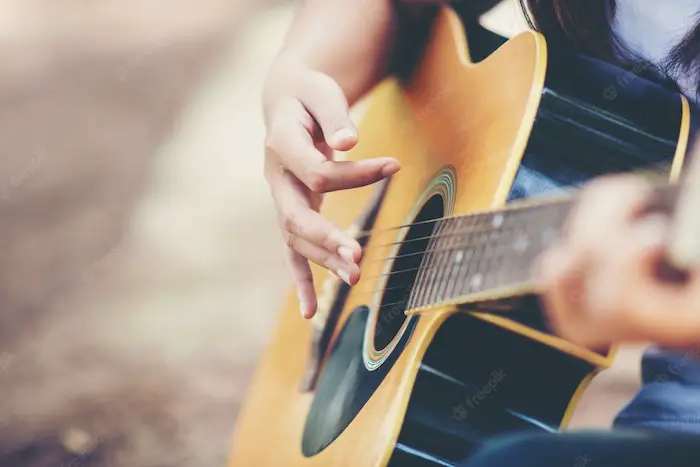
The guitar is undoubtedly one of the world’s most-played musical instruments. It’s ideal for learners aged 6 years and above.
Non-electric guitars are easier to master and therefore ideal for those who are just starting. They come in a wide array of sizes and styles to meet the unique needs of every learner.
Guitars complement other musical instruments and still sound amazing when played solo. If you want to record the audio, consider getting an audio interface.
2. Ukulele
This small, fancy, and portable instrument is a great choice for beginners. It resembles a mini-guitar with four nylon strings, which are super easy to press and play than nickel or steel strings.
Thanks to its petite size, young musicians can enjoy carrying it around and sharpening their skills. You can master playing several cords within a short duration, and even acquaint yourself to a few songs.
More importantly, the ukulele produces a pleasant sound that soothes your ears.
3. Piano or Keyboard
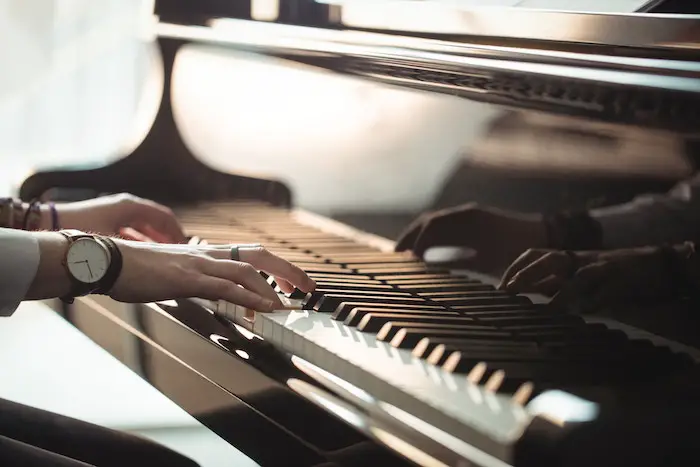
Learning piano isn’t as convenient as the ukulele or even the guitar. Other than occupying a big portion of space in your house, a piano is also a bit costly. You’ll also need to have it tuned by a professional and a couple of formal lessons to grasp the basics of playing the instrument.
That aside, the biggest advantage of learning piano is that you acquire an in-depth knowledge of music theory, which is applicable in nearly all other instruments. It also allows you to add an audio interface for better quality recording.
4. Trumpet
This instrument boasts a long and memorable history in the musical world. It has been in existence as early as 1500 BC.
With physical stamina and professional guidance on how to control the breath and keys properly, the trumpet has proven itself as an excellent tool for innovation.
Playing trumpet guarantees you a fun-filled experience, but it’s not ideal for DIY music because it requires lots of guidance.
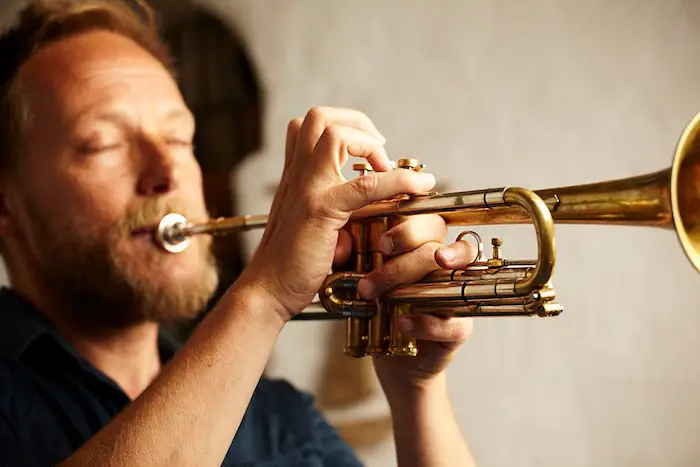
5. Violin
Violin has been instrumental in music composition and development for almost five centuries. It’s beginner-friendly and ideal for kids 6 years and above.
Violins come in a broad range of sizes to suit the learner’s age and needs. If you’re just starting, non-electric violins will be the best pick for you.
With determination and a few lessons, the violin is fun to learn.
6. Cello
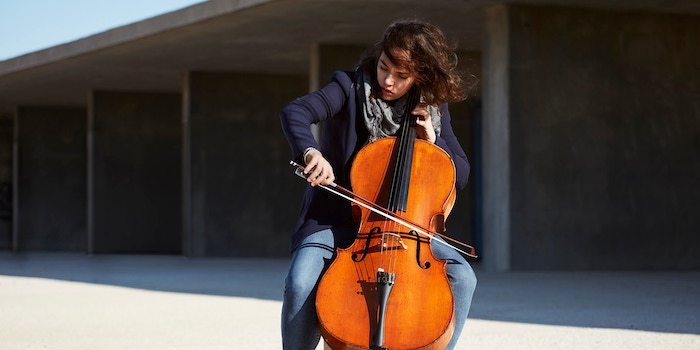
This instrument is larger than the violin. It’s well known for its ability to produce emotional and melancholic sounds.
Other than being a great solo instrument, it can be combined with violas and violins to generate trios or quartets. Just like the violin, determination and proper guidance are important ingredients in learning the cello.
For a better musical experience, people can add audio systems which to make it perfect needs an audio interface.
7. Drums
Drums are one of the most awe-inspiring instruments to learn and to play. Thanks to their ability to produce rhythm-rich sound, all other musical instruments draw their tempo from drums.
But like all musical instruments, you need to be extra careful to avoid common mistakes that beginners make while starting.
Consider starting with simple beats and regular drum roll before transitioning to more intricate drumming patterns.
8. Saxophones
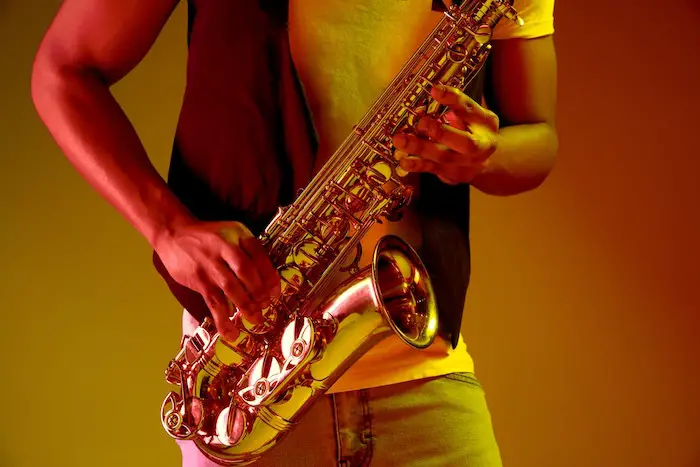
The saxophone has cemented its place in the music scene due to its versatile nature. It’s used in various genres, from Blue to Rock to R&B to Jazz. It also comes in various sizes and types, including soprano, alto, baritone, and tenor.
Beginners should consider starting with the alto saxophone.
9. Recorder
The recorder is technically one of the easiest woodwinds to learn. With just a simple fingering chart, you can learn how to play the recorder on your own.
This ultraportable device teaches you breath control and appropriate finger positioning, which are the most basic and essential techniques of woodwinds.
Once you get used to a recorder, you can challenge yourself with more complex mouthpieces like clarinet or flute.
10. Harmonica
Harmonica is another versatile and newbie-friendly musical instrument that has cut its place in numerous genres like Blues, Country, Folk, and Rock Bands. It’s extremely portable, so you can carry it anywhere you want during your free time.
Harmonica is also affordable, meaning you can widen your range of keys by investing in a handful of different harmonicas.

Conclusion
When choosing a beginner-friendly musical instrument, you should always choose whatever inspires your inner artist to shine.
In addition to the sound you like, consider the instrument’s physicality. For example, pianos require serious motor coordination while recorders require lots of breath control and correct finger positioning.
With that being said, also bear in mind that learning an instrument is a journey that takes time, determination, and continuous practice.




















